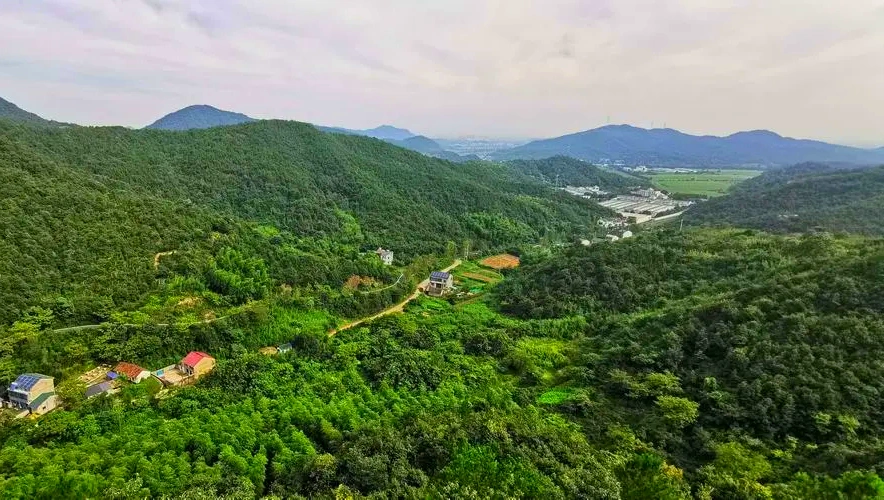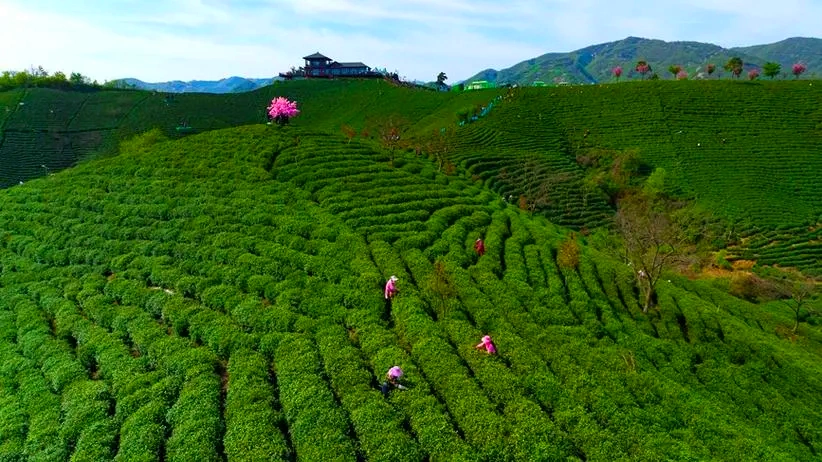
Wufeng Mountain Tea Plantation in Xinyang
Wufeng Mountain Tea Plantation in Xinyang (信阳毛尖五峰岭茶场), located in Xinyang City, Henan Province, is renowned for producing Xinyang Maojian, one of China’s top ten teas. Nestled in the Wufengling region, this plantation boasts picturesque landscapes of rolling hills, lush valleys, and abundant greenery. It is not only a prime location for tea production but also a popular tourist destination for those seeking the beauty of nature and the rich culture of tea.
Features and Attractions
- Natural Beauty
- Rolling Hills and Valleys: The plantation is situated in an area with undulating terrain, offering ideal conditions for tea cultivation. The scenic beauty of the hills and valleys, combined with the verdant tea fields, provides breathtaking views.
- Rich Biodiversity: The plantation supports diverse flora and fauna, making it an ecological haven and enhancing the natural beauty of the tea gardens.
- Tea Cultivation
- Premium Tea Leaves: Xinyang Maojian is celebrated for its high-quality tea leaves, known for their slender, needle-like shape and robust, aromatic flavor. The unique microclimate and fertile soil of Wufengling contribute significantly to the tea’s exceptional quality.
- Traditional Techniques: The plantation maintains traditional tea cultivation and processing techniques, ensuring that each batch of tea retains its authentic flavor and superior quality.
- Tourist Attractions
- Tea Picking Experience: Visitors can participate in tea picking during the harvest season, gaining hands-on experience in selecting the finest tea leaves.
- Tea Tasting Sessions: The plantation offers tea tasting sessions where visitors can savor the rich, aromatic flavors of freshly brewed Xinyang Maojian tea.
- Scenic Walks: There are several scenic walking trails around the plantation, allowing visitors to explore the natural beauty of the area at their own pace.
Historical and Cultural Significance
The Wufengling region has a long history of tea cultivation, dating back centuries. Xinyang Maojian tea has been highly regarded since the Tang Dynasty and continues to be a symbol of high-quality Chinese green tea. The cultural heritage of tea production in this area is preserved through traditional methods passed down through generations, making the Xinyang Maojian Wufengling Tea Plantation a significant cultural and historical site.
Visitor Information
- Best Time to Visit: The best time to visit the plantation is during the tea harvesting seasons in spring (April to May) and autumn (September to October), when the weather is pleasant, and the tea leaves are at their best.
- Accessibility: The plantation is accessible by road from Xinyang City, with transportation options including buses and taxis.
- Accommodation: Visitors can find various accommodation options in Xinyang City, ranging from budget-friendly hotels to more luxurious stays.
Conclusion
The Xinyang Maojian Wufengling Tea Plantation offers a unique blend of natural beauty, cultural heritage, and premium tea production. Whether you are a tea enthusiast, a nature lover, or a cultural explorer, this plantation provides an enriching experience that highlights the best of Xinyang Maojian tea and the picturesque Wufengling region.















